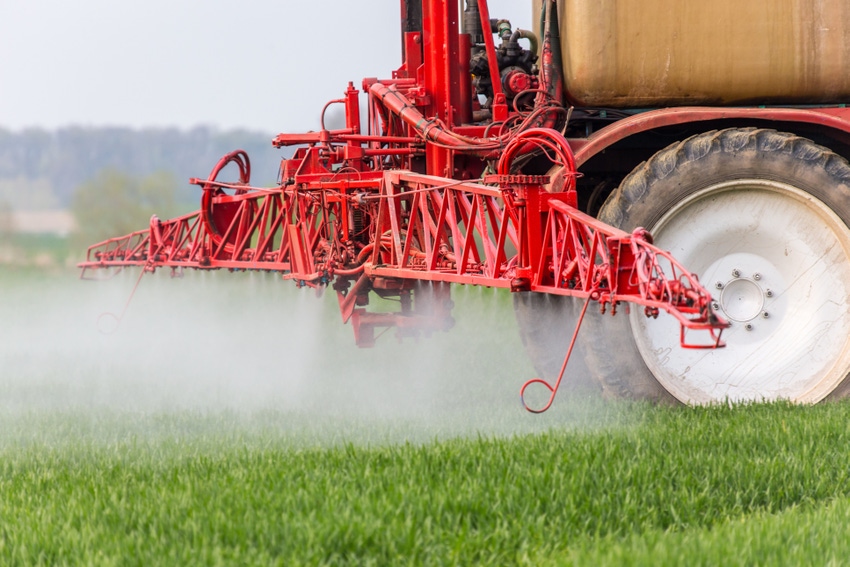December 21, 2017

Private pesticide applicators holding licenses that expire in 2018, as well as anyone seeking first-time private applicator certification, can contact a local Nebraska Extension office for information on pesticide safety training. Around 200 statewide sessions will be held January through April.
After completing the Pesticide Safety Education Program, licensed private pesticide applicators can buy and use restricted-use pesticides (RUPs) in their farming operations. More than 3,500 private applicators statewide are eligible for recertification in 2018.
Separate training opportunities will be held for dicamba products XtendiMax, FeXapan and Engenia, now classified as RUPs. Information related to that training will be available in early 2018.
While Nebraska producers are extremely knowledgeable and conscientious about safety and pesticides, as farming and farming products and tools become increasingly sophisticated, producers need new information, as well as refresher information, to help make the best decisions for safety and economics, says Clyde Ogg, Nebraska Extension pesticide safety educator.
"The training serves to reinforce the techniques our producers are doing right and boosts their understanding of some of the more technical aspects of pesticide safety," he says.
Preventing resistance key
"Training helps participants better understand such topics as herbicide resistance and the newly revised federal Worker Protection Standards," Ogg says. Other topics include pesticide drift, Nebraska pesticide laws and regulations, the pesticide label, personal safety, environmental protection, Integrated Pest Management, pesticides and application, application equipment and equipment calibration.
"It is important to better understand how weeds become resistant to pesticides, to manage resistant weeds and prevent that from occurring in the future," Ogg says.
Participants will use the updated “Guide for Weed, Disease and Insect Management,” EC130, to learn how to use label information, such as chemical group numbers, as well as nonchemical techniques, to reduce development of pest populations resistant to pesticides. The comprehensive guide is included with registration.
Another new development for 2018 will be an overview of the newly revised federal Worker Protection Standards. The last part of the revision goes into effect Jan. 1. One example is that aside from immediate family members, people under age 18 will no longer be able to handle (mix, load and apply) pesticides.
"The revised federal law is designed to minimize contact and exposure to pesticides," Ogg says. "Extension is helping our producers to be aware of these new regulations and how they can keep their employees even safer."
Time to recertify?
Those needing recertification in 2018 will be notified in two ways. One is through the Nebraska Department of Agriculture and the other is through Nebraska Extension.
Private applicators needing recertification in 2018 may expect a notification letter from NDA in December. The letter includes a bar code that eliminates the need to complete the standard NDA application form. Those eligible for recertification will also be notified by local Nebraska Extension offices regarding training courses.
Applicators should check their licenses for the expiration date. If it expires in 2018 and they haven't yet received a letter from NDA, contact the agency at 402-471-2351 or 877-800-4080.
Extension provides the educational training for recertification, while NDA is responsible for licensing. The cost of Extension training is $40 per person; NDA licensing is a separate fee.
For a list of training sessions, sites and dates, contact a Nebraska Extension office or go online to pested.unl.edu, where applicators will find a link to the 2018 private pesticide training dates. That link shows education sites for private applicators listed by county. Preregistration is required for some, though not all, locations.
A self-study course is another option for recertification, available in either a hard-copy manual through a local Extension office or online at marketplace.unl.edu at the pesticide education section. The cost for either self-study course is $60.
"After completing private applicator training, certification applications will be sent to NDA, which will then bill the applicator for the state license fee," Ogg says.
Source: IANR News Service
You May Also Like




